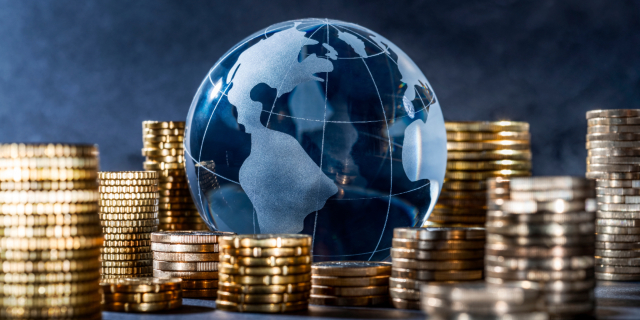This article is contributed by Shan Saeed, a Global Chief Economist at Juwai IQI, a leading proptech company operating and advising clients in Kuala Lumpur, Indonesia, Dubai, and more.
Shan has over 22 years of solid financial market experience in the areas of private banking, risk/compliance management, commodity investments, global economy, branding and business strategy.
The Americans has spoken. They have opted to re-elect the 45th President as the 47th President of the United States, aiming to make America great again.
With 312 electoral votes, Donald J. Trump is set to return to the White House.
However, with his promises of imposing blanket tariffs up to 20% on imports from various countries and 60% on Chinese goods, what implications does this have for the global real estate market?
In Asia, countries with significant trade deficits with the U.S., such as Malaysia and China, may have certain expectations.
But Shan Saeed, Global Chief Economist at Juwai IQI, reassured that the situation may not be as dire as it appears.

What “America First” Policy Could Really Mean?
Trump’s “America First” policies aim to strengthen the U.S. economy by boosting domestic manufacturing, technology, and electric vehicle (EV) industries.
He made it clear that he will prioritise the interests of the United States over global considerations, with a strong focus on protecting American jobs, industries, and sovereignty.
While it may sound like bad news for some, Shan highlighted that this focus could shift U.S. investments toward these sectors and simultaneously increase foreign investment in areas tied to global supply chains.
As a result, the U.S. real estate market will remain strong, attracting long-term foreign investment.
How Does This Impact the Global Real Estate Market?
So, the question posed is whether investing in the U.S. real estate market is a smart choice. Will global investors feel more confident or more cautious?
Shan assured that the U.S. partnership with Asia in the global real estate market will continue to be attractive.
The global capital is expected to flow into high-potential real estate sectors, benefiting Asian markets with developing economies, rising middle classes, and strong demand for both residential and commercial properties.
Other than that, since the Federal Reserve is likely to begin lowering interest rates in 2025, international investors may see the U.S. real estate market as a good long-term investment.
As mortgage rates decrease, there could be a boost in confidence, prompting global investors to explore opportunities in the U.S. real estate market.
Although some may still be careful, the chance of lower borrowing costs might ease worries, making the U.S. a strong and stable investment option in the future.

What to Expect for U.S. Global Real Estate Market?
In the coming years, U.S. investors are likely to target emerging global real estate markets that exhibit strong demographics and rising income levels.
These growing markets offer the potential for sustained demand and long-term growth, making them attractive for investment.
However, as for capital flow into U.S. commercial real estate, Shan said it is still premature to make definitive predictions.
But many of the changes in capital movement will likely be driven by market conditions and evolving regulations, which will adjust in response to broader economic trends and investor sentiment.

Where Is the Room for Improvement?
Addressing the current geopolitics war and events that are happening, experts are predicting that they are room in improvement.
Geopolitical events and external factors, such as changes in government and capital control restrictions, are beyond the control of investors, yet they can significantly influence global real estate trends, particularly in relation to U.S. markets.
As economies grow, real estate markets tend to move in tandem, and these global shifts can present both opportunities and challenges.
The ongoing events in the Middle East, for example, may have impacted a lot of supply chain business, but real estate markets, particularly those in major hubs, are likely to remain attractive to sophisticated and strategic investors.
However, the situation is highly unpredictable, as per Shan, and investors remain uncertain about the long-term impact of geopolitical risks.
In light of these factors, many would like to see lower interest rates and reduced inflation, as these conditions could help stabilise the market and provide a more favourable environment for investment.
Overall, it is still too early to determine the complete outcome, but there is reason to be optimistic, particularly for Asian countries such as China, Malaysia, and Vietnam.
Economic experts suggest that the U.S. market has the potential to greatly impact and enhance the stability of global real estate markets and economic partnerships.
What say you?

Shan Saeed serves as the Global Chief Economist at Juwai IQI, a prominent proptech firm that provides services and advice to clients in locations such as Kuala Lumpur, Indonesia, Dubai, and Italy.
With over 22 years of extensive experience in financial markets, he specializes in private banking, risk and compliance management, commodity investments, global economic trends, branding, and business strategy.
Residing in Kuala Lumpur, he is also a financial market commentator, frequently featured in media outlets like Al Jazeera TV, Hubbis Hong Kong, CNBC Arabia/Indonesia, Singapore, FT [Deutschland], Channel News Asia Singapore, International New York Times/Malaysian Reserve, The Edge Financial Daily, and several others.
If you’re excited about the global real estate market and want to dive deeper into international property investment, feel free to reach out to us! We’re more than happy to assists you.
Continue Reading:
